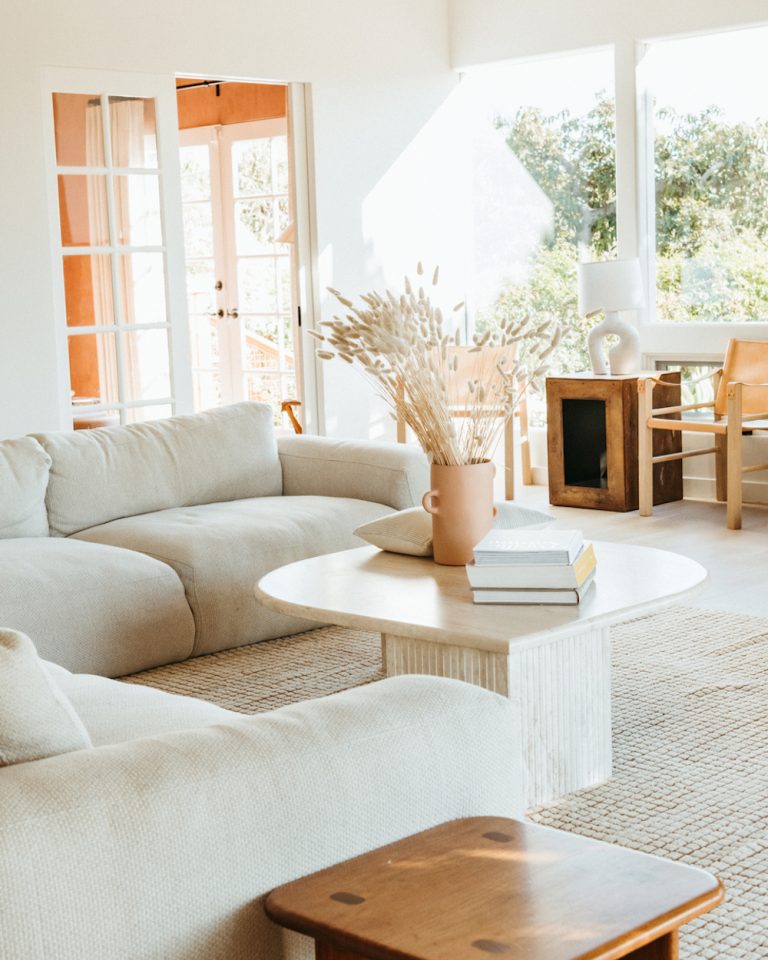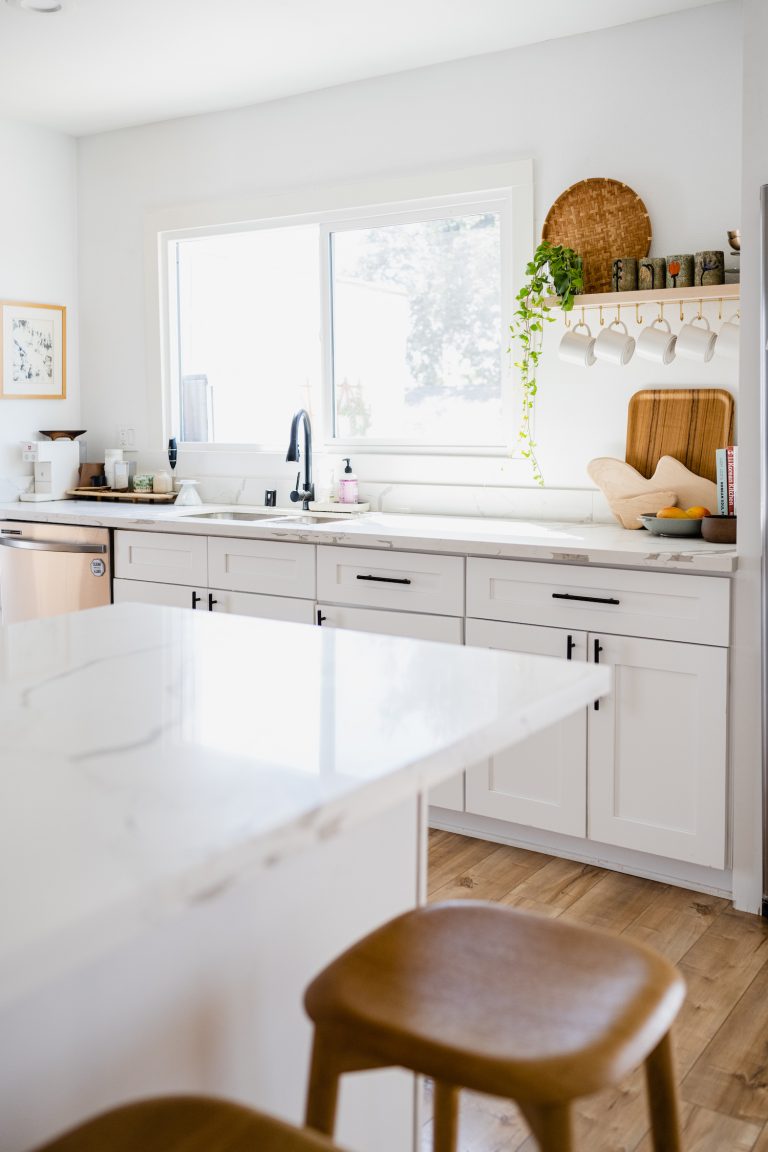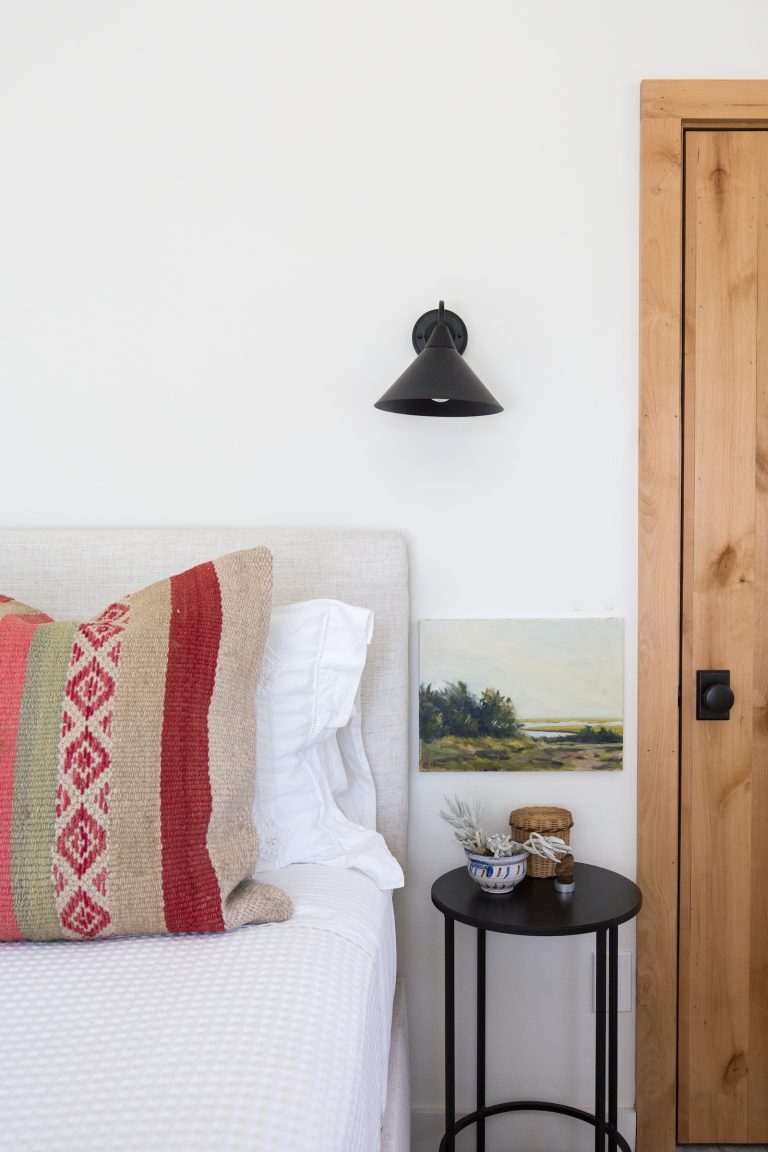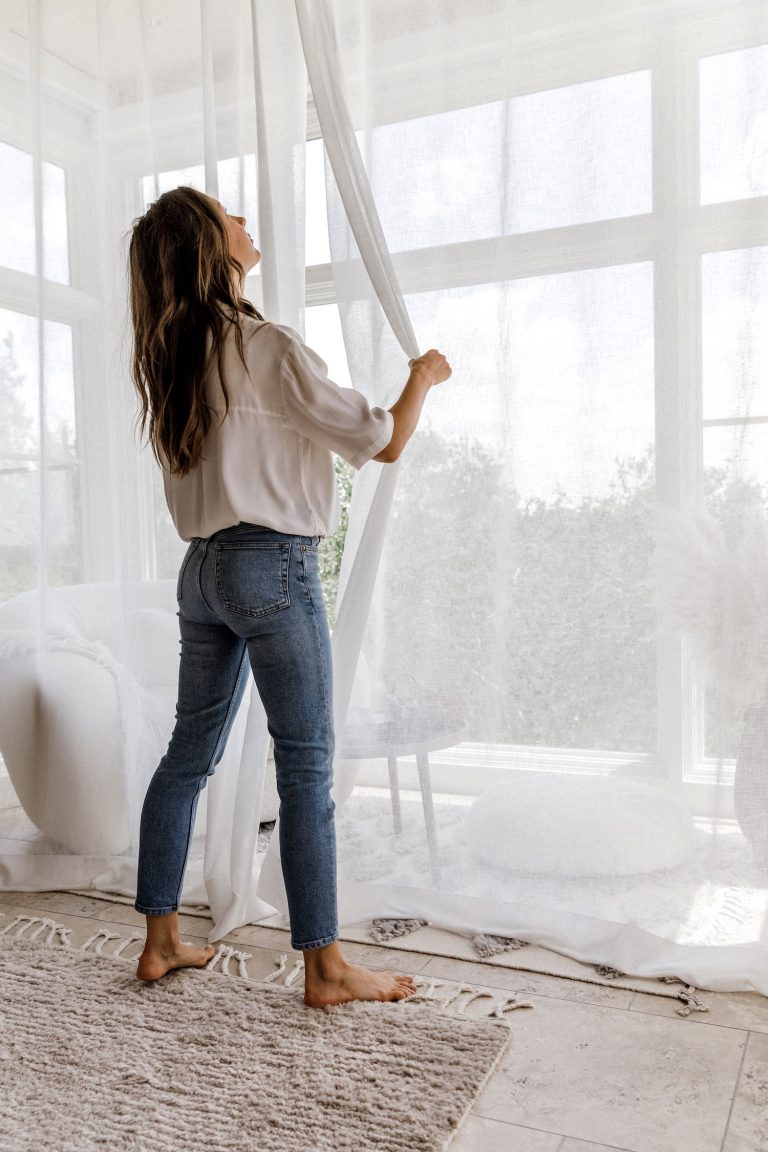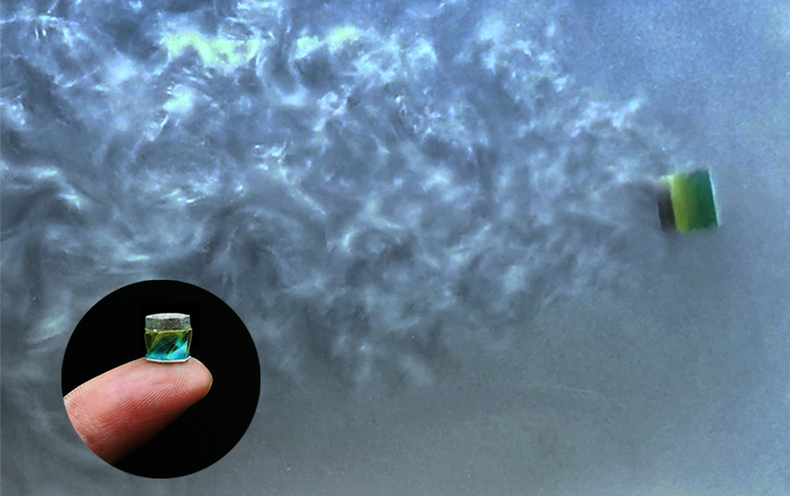A decade ago, Shawna Holman knew something had to change. She’d been battling chronic health conditions for years, including debilitating migraines and brain fog. Western medicine offered some reprieve but weakened her immunity. She needed a radical shift. A way to clear the root causes of her issues and support her body. So she began on a journey to reduce the toxins in her and her family’s life—from their self-care items to their home products to their foods.
Little by little, Holman healed. As she researched, tossed, and swapped things in and out of her life, she gained so much knowledge about making our homes and lives “a little less toxic,” as she says.
Featured image of Kate Zimmerman Turpin’s Sunday House.
How to Make Your Home Healthier
Holman has become a trusted resource in accessible, everyday home wellness. Her site and book A Healthier Home: the Room by Room Guide to Make Any Space A Little Less Toxic offers accessible advice for cleaner living, ranging from how to make your home healthier to easy healthy recipes.
I recently called Holman for her advice on how to reduce the toxins in our homes. As we chatted, I learned that what’s most compelling about her is her humility and non-judgment. Her approach, as discussed below, is to take small steps and do what works for you.
“I like to give the example of taking one giant step,” says Holman. “You may lose your balance a little—then if you stretch your foot out even further, you’ll fall. But I take a step that’s reasonable for me. It might not look like somebody else’s step. Just as long as I’m able to continue moving forward.”
Healthy Home Tips from an Expert
For someone who wants to start making their home healthier, where’s the best place to start?
One place that will make the most significant impact, and you can start immediately, is the food in your kitchen. That’s where I began. Because when it comes to food, those are things you will be replacing anyway. So if you run out of ketchup, replace your next bottle with something that has better ingredients that fit your budget. If you keep doing that, you’ll see significant changes very quickly.
After that, look at other things that you use in the home frequently. This usually means products and personal care items. When they start to run low, look for options that are a little less toxic. But always give yourself a grace window so you can do some research and find a product that meets your needs and your budget.
When it comes to toxins lurking in our homes, what are some heavy hitters we should avoid?
Fragrance. It’s in pretty much everything—even places you wouldn’t expect, like blush, concealer, and feminine products. Fragrance is made of dozens, even hundreds, of different chemicals that legally don’t have to be disclosed on the label. These ingredients often contribute to poor health outcomes and poor indoor air quality.
So look for fragrance in your ingredients. If you can avoid it, it makes a huge difference. I can tell you after ridding fragrance, when I encounter it now, I can feel it in my throat, my nose, and in my head. A lot of people who’ve also removed it from their lives have said that to me.
You’re a big advocate of opening the windows. Why is this beneficial?
I think of it like we’re in this terrarium, and the sun rays are coming in, and everything is getting escalated inside. When we keep the doors and windows closed, even if we have circulating air conditioning systems, that holds all the things that off-gas from our materials, micro-toxins from dust, and anything else more concentrated. So to open the doors and windows, even for 10 to 20 minutes a day, is going to allow that to pass out and for fresh cleaner air to cycle in. This even goes for cities where there may be poorer air quality. It’s still much more polluted indoors when the doors and windows are closed.
We spend so much of our lives in the bedroom. How can we make that room healthier quickly?
For the bedroom, it’s essential to start with the most fundamental things:
- Keep it less dusty.
- Invest in healthy bedding.
You can reduce dust by keeping clutter to a minimum, vacuuming often, and opening the windows. This all contributes to a healthier environment.
And as for our beds, because we spend so much of our lives in them, bedding is essential. It may be too big of an investment to buy a whole new mattress, so if you can’t, invest in a quality, non-toxic mattress topper and sheets made of natural materials. This helps limit your toxic exposure.














































